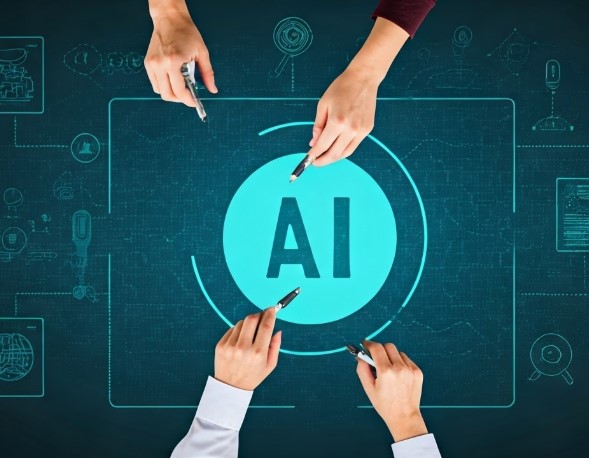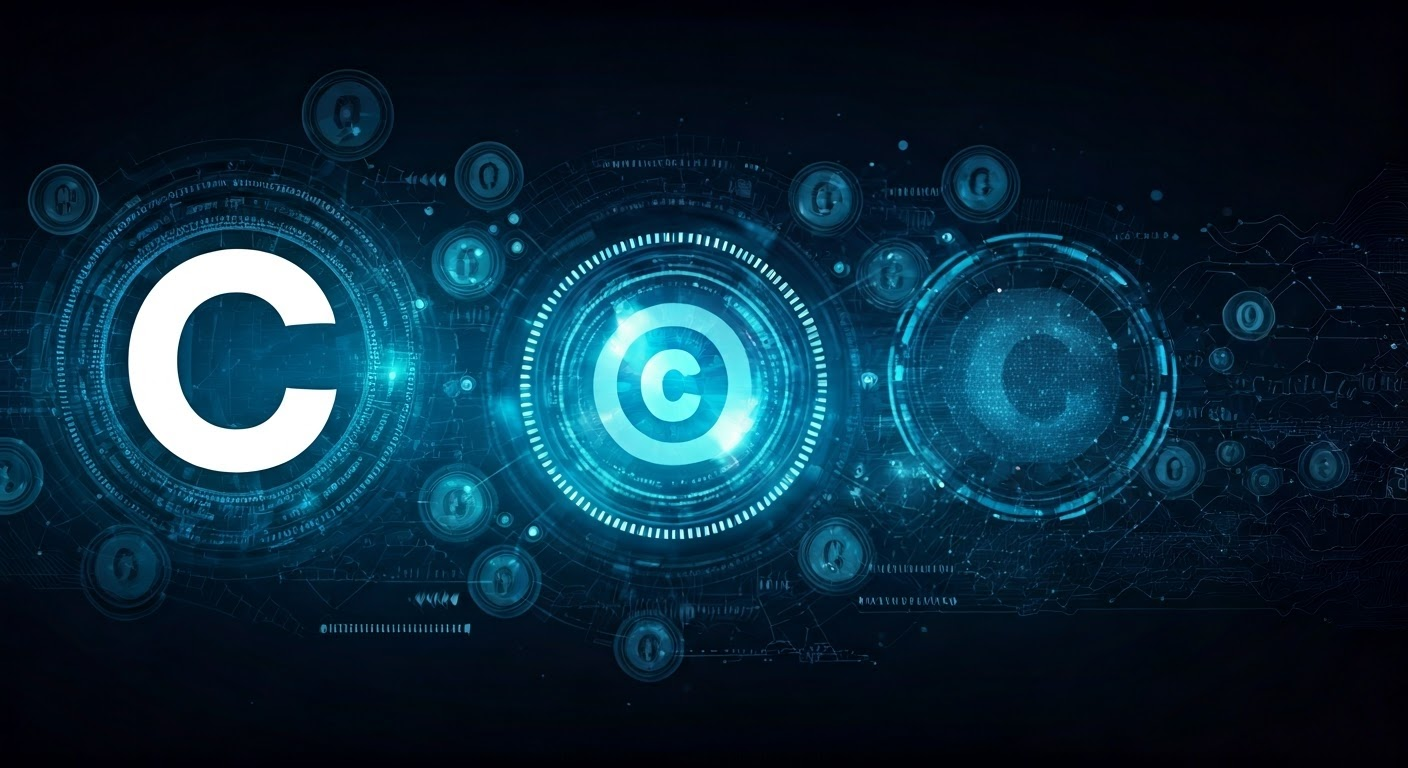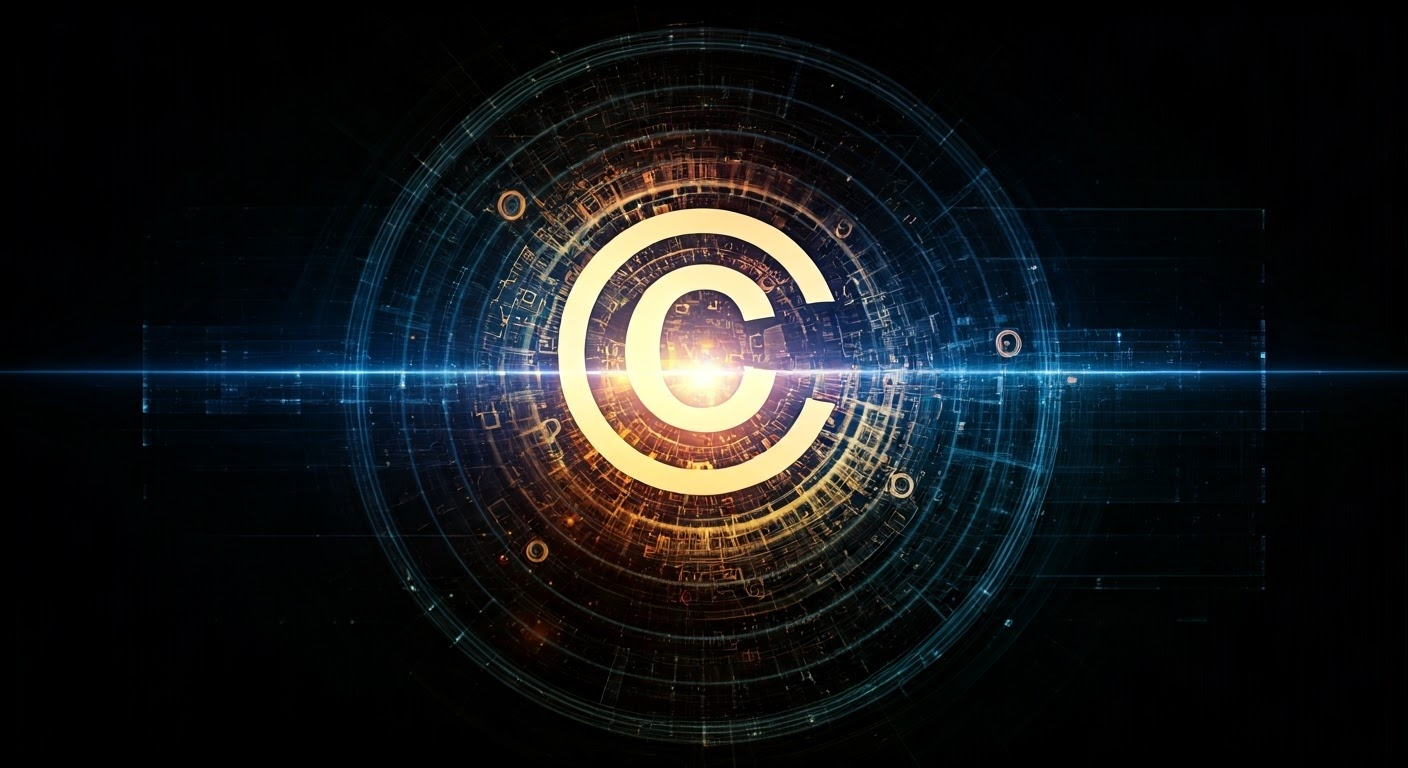
Master Copyright AI Free: Expert Strategies

Key Highlights
- Discover how to leverage AI for content creation without infringing on copyrights.
- Learn expert strategies for navigating AI copyright issues.
- Explore practical tips for implementing AI in your creative process responsibly.
- Gain insights from real-world case studies of successful copyright navigation with AI.
- Access a curated list of essential free AI tools for beginners and advanced users.
Introduction
In today's digital landscape, where artificial intelligence is revolutionizing content creation, understanding copyright implications is more critical than ever. This comprehensive guide provides expert strategies to help you master copyright in the age of AI. From understanding the basics to leveraging open-source tools and navigating legal considerations, we'll equip you with the knowledge to harness the power of AI while respecting intellectual property rights.
Expert Strategies to Master Copyright AI Free

Successfully integrating AI into your content creation workflow while adhering to copyright laws requires a multi-faceted approach. It's not just about understanding the legal framework; it's also about adopting ethical practices and utilizing AI tools responsibly. Throughout this blog post, we will explore practical strategies to empower you with the knowledge and tools needed to navigate the exciting world of AI-powered content creation while respecting intellectual property rights.
From understanding the fundamentals of copyright in AI to exploring open-source resources and real-world case studies, we'll equip you with a comprehensive understanding of how to maximize the benefits of AI without compromising on legal and ethical standards.
1. Understanding the Basics of Copyright in AI
Navigating the intersection of artificial intelligence and copyright law begins with grasping the fundamentals. Copyright safeguards original works of authorship, granting creators exclusive rights to their creations. However, the application of these laws to AI-generated content raises complex questions.
Primarily, it's essential to remember that copyright protection typically requires human authorship. While AI tools can generate content, the question of ownership and copyright protection remains a gray area in many jurisdictions. To ensure compliance, it's crucial to review the terms of service of any AI tools you use.
Additionally, understanding how copyright laws vary across the globe is vital for creators with a global audience. Familiarizing yourself with international copyright treaties and consulting legal professionals specializing in intellectual property can help safeguard your work in today's interconnected world.
2. Key Strategies for Navigating AI Copyright Issues
Successfully utilizing AI tools for content creation involves more than just understanding copyright laws; it requires proactive strategies to address potential concerns head-on. Here are a few key strategies to navigate AI copyright issues effectively:
- Thoroughly Review AI Tool Terms: Before utilizing any AI tool, carefully examine its terms of service. Pay close attention to clauses defining ownership and usage rights for the content generated.
- Prioritize Originality: While AI tools can assist in content creation, always strive for originality. Use AI as a starting point and infuse your creativity to craft unique content.
- Attribute AI Assistance: If an AI tool significantly contributes to your work, consider acknowledging its assistance. Transparency builds trust and demonstrates ethical content creation practices.
By integrating these strategies into your workflow, you can minimize the risk of copyright infringement and leverage AI tools responsibly. Remember, navigating AI copyright issues requires vigilance and a proactive mindset.
3. Leveraging Open Source AI Tools Responsibly
Open-source AI tools present a wealth of opportunities for content creation, often providing greater flexibility and customization options. However, even when using open-source tools, practicing responsible and ethical content creation is paramount.
Understanding the licensing agreements of open-source AI tools is essential. Familiarize yourself with the terms, including any attribution requirements or limitations on commercial usage. Additionally, while open-source tools can be powerful, it's important to use them ethically.
Always prioritize transparency and attribute the source of any code or models you use. Remember, contributing to the open-source community fosters collaboration and innovation while upholding ethical standards within the AI landscape.
4. Implementing AI in Your Creative Process Without Violating Copyrights
Incorporating AI Writer into your creative writing and content creation process offers efficiency and new avenues for exploration, including creating effective meta descriptions and effective product descriptions that can improve search engine rankings, without having to engage the creative writing part of my brain in a fraction of the time. However, it's crucial to ensure this integration doesn't infringe on copyrights. One effective approach is to treat AI as a thought partner – a tool to spark ideas and overcome writer's block, especially when crafting effective product descriptions.
Utilize AI content creation tools and our free AI copywriting tool to generate outlines for different types of blogs, explore different writing styles, or rephrase website copy for clarity. However, always view the output language as a starting point for full blog posts, not a finished product. Infuse your unique voice, creativity, and critical thinking into your marketing copy, transforming AI-generated content into original work that reflects your style and expertise, including free blog post ideas.
Remember, the goal is to embrace AI as a collaborative tool that enhances – not replaces – your creative process. By maintaining control over the final output and adding your personal touch, you can leverage AI responsibly to craft engaging and unique content.
5. Case Studies: Successful Navigation of Copyright with AI
Numerous individuals and organizations effectively utilize AI for content creation while navigating copyright considerations. Examining real-world case studies provides valuable insights and practical guidance, showcasing how to strike a balance between AI assistance and originality.
Case Study
Description
Copyright Considerations
An experienced writer uses an AI tool to summarize research articles and identify relevant health content data points, saving significant time during the content creation process.
An experienced writer uses an AI tool to summarize research articles and identify relevant health content data points, saving significant time during the content creation process.
The writer ensures all research is appropriately cited, and the AI tool's output is used solely for information gathering and not directly incorporated into the final work.
Marketing Agency Utilizing AI for Social Media Content
A marketing agency uses an AI tool to generate social media captions, including Instagram captions and Facebook ads, along with marketing emails and headlines. They personalize the output by adding brand-specific information and tailoring it to their target audience.
The agency understands that the AI tool's output is not inherently unique and focuses on customization and originality to create engaging content while respecting copyright.
These examples demonstrate that leveraging AI for content creation success hinges on responsible usage, originality, and respect for copyright.
Developing Your AI Skills While Respecting Copyright Laws
Mastering copyright in the context of AI involves a continuous learning journey. Embrace opportunities to expand your knowledge and remain adaptable as AI technology evolves. One crucial aspect is understanding the limitations of AI tools. While AI can automate tasks and generate content, it lacks human judgment, context awareness, and the ability to truly understand complex emotions.
Recognize that while AI can aid in content creation, it cannot replace human creativity and critical thinking. By continually developing your skills and utilizing AI tools responsibly, you can ensure your work remains original, compliant with copyright laws, and aligned with ethical practices.
6. Essential Free AI Tools for Beginners
Beginners venturing into AI-powered content creation can find a plethora of free tools to simplify their workflow without compromising on quality. These tools offer a great starting point:
- Paragraph Generator: Streamline your writing process by utilizing a paragraph generator to overcome writer's block or develop initial drafts. Input your topic and let the AI generate coherent paragraphs you can then refine and personalize.
- Free Product Description Generator: Enhance your e-commerce efforts with a free product description generator. Provide key product information and allow the tool to craft compelling descriptions, saving you time and ensuring consistency across your online store.
- Free Outline Generator: Conquer the blank page by using a free outline generator. This tool helps you structure your thoughts and create well-organized blog posts, ultimately accelerating the writing process and enhancing content quality.
7. Advanced Techniques for Experienced AI Users
For seasoned AI users, exploring advanced techniques can unlock new levels of efficiency and sophistication in content creation, even for an expert user of the AI. Fine-tuning pre-trained language models offers greater control over the output, allowing you to create content closely aligned with your brand voice and style.
Utilizing custom datasets to train AI models provides an avenue for generating highly specialized content tailored to your niche. Embrace experimentation by testing different AI tools and techniques. The field is continuously evolving, so stay informed about the latest tools and explore new possibilities to stay at the forefront of AI-powered content creation.
8. Avoiding Common Pitfalls in AI Development and Distribution
As AI plays an increasingly prominent role in content creation, understanding and avoiding common pitfalls is crucial for protecting yourself and ensuring ethical practices. One significant concern is the potential for copyright infringement if an AI model is trained on copyrighted data without proper authorization.
Before using any AI tools or models, carefully review the licensing agreements and ensure your usage aligns with copyright laws. Similarly, distributing AI-generated content without proper attribution or transparency can raise ethical and legal issues.
Always be mindful of the source of your content and clearly disclose any AI assistance. By understanding potential risks and proactively implementing safeguards, you can minimize the likelihood of encountering legal problems.
Legal Considerations and Ethical Practices in AI
While navigating the evolving landscape of AI and copyright, seeking legal counsel is crucial to safeguard your work and ensure compliance. Consulting an attorney specializing in intellectual property can provide tailored guidance, address specific concerns, and clarify legal complexities.
Moreover, upholding ethical practices in AI development and usage goes beyond legal compliance. Promote transparency, accountability, and fairness throughout your AI-related endeavors. By fostering ethical practices, you contribute to a responsible and sustainable AI ecosystem.
9. The Role of Copyright in Protecting AI Innovations
As AI technology advances rapidly, protecting AI innovations through copyright law becomes increasingly significant. Copyright provides a legal framework for securing the intellectual property rights associated with AI creations, fostering continued innovation. By obtaining copyright protection, developers and creators of AI technologies secure their investments and encourage further development in the field.
Copyright also plays a vital role in establishing ownership and enabling the commercialization of AI innovations. Moreover, copyright can incentivize the sharing of knowledge and collaboration by providing a clear legal framework for licensing and using AI technologies.
10. Ethical Considerations in AI Development and Usage
Ethical considerations are paramount in AI development, shaping how we integrate these technologies into our lives and societies. As AI systems become more sophisticated, addressing potential biases is essential. Developers must strive for inclusivity and fairness, ensuring AI tools do not perpetuate existing societal prejudices.
Transparency and accountability are critical. Users should have a clear understanding of how AI systems work and the potential implications of their decisions. Fostering an ethical culture surrounding AI development requires open dialogue, collaboration, and a commitment to responsible innovation.
KeywordSearch: SuperCharge Your Ad Audiences with AI
KeywordSearch has an AI Audience builder that helps you create the best ad audiences for YouTube & Google ads in seconds. In a just a few clicks, our AI algorithm analyzes your business, audience data, uncovers hidden patterns, and identifies the most relevant and high-performing audiences for your Google & YouTube Ad campaigns.
You can also use KeywordSearch to Discover the Best Keywords to rank your YouTube Videos, Websites with SEO & Even Discover Keywords for Google & YouTube Ads.
If you’re looking to SuperCharge Your Ad Audiences with AI - Sign up for KeywordSearch.com for a 5 Day Free Trial Today!
Conclusion
In wrapping up, mastering copyright in AI is crucial for creators. Understanding the basics, navigating copyright issues, and leveraging open-source tools responsibly are key strategies. Implement AI in your creative process ethically to avoid violations. Learn from successful case studies and develop your AI skills with free beginner tools and advanced techniques. Respect copyright laws to build innovative AI solutions. Embrace legal considerations and ethical practices to protect AI innovations. By following these expert strategies, you can navigate the complex world of AI and copyright with confidence. If you're ready to elevate your AI skills while respecting copyrights, start implementing these strategies today!
Frequently Asked Questions
What are the best practices for using AI without infringing on copyrights?
When utilizing AI tools for content creation, prioritize originality, understand the terms of service, and use output as a starting point. Always attribute AI assistance and focus on ethical use, ensuring your content remains compliant.
How can I ensure my AI creations are copyright compliant?
To ensure AI creations are copyright compliant, avoid using copyrighted material for training without permission. Disclose AI assistance transparently and seek legal advice to clarify ownership and licensing agreements.
